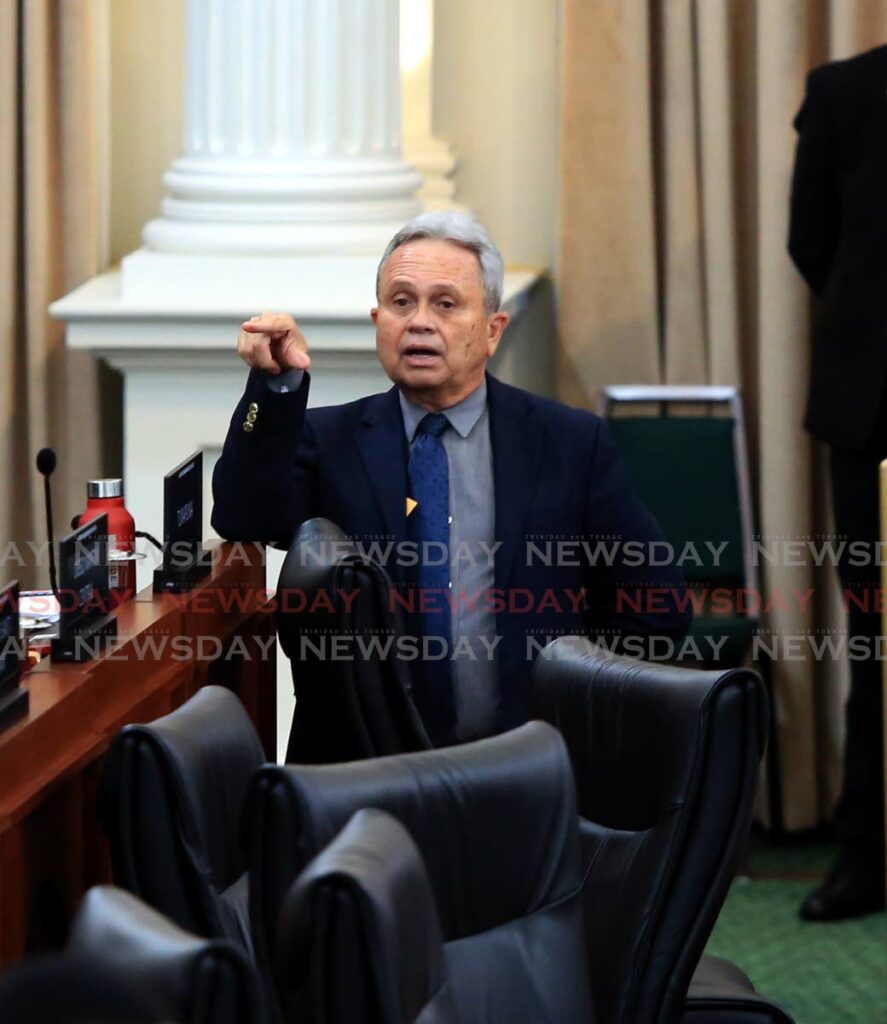Business editorial: Imbert’s toughest budget yet?

Monday's budget from Finance Minister Colm Imbert will occur in the shadow of the lingering impact of the covid19 pandemic, Russia’s continued assault on Ukraine, the climate crisis and, perhaps most importantly Mr Imbert himself.
Last year, the Finance Minister promised much. He must now account for what remains to be delivered.
We agree with those who have called for Mr Imbert’s presentation, his eighth, to be brief. But not as brief as suggested by Opposition MP Rudy Indarsingh, who wishes to hear only three words: jobs, jobs, jobs.
All eyes will, yes, be on measures to boost employment by stimulating the economy, reforming make-work programmes, and better providing for the vulnerable. This is especially so given the current industrial relations climate, which has all but seen the dream of tripartism involving collaboration with labour more or less evaporate.
But, to paraphrase another public official – Minister of National Security Fitzgerald Hinds – there is simply too much work to be done.
We need to hear about the diversification of the economy, the reform of the public service, the bolstering of labour productivity and measures, crucially, to promulgate a society inclined toward progress, and one free of the scourge of violence.
Fighting crime, expanding the reach of education – not reducing it – and making this country’s economy as self-reliant and sustainable as possible are imperatives.
What we do not need is the standard recitation of long lists of ostensible accomplishments (some genuine, some hollow), the rattling of economic statistics emptied of meaning, context or relevance and politicised history lessons relating to things that took place, by this stage, decades ago under prior administrations.
The Central Statistical Office (CSO) has released information suggesting the economy declined by four per cent in the first quarter and that the inflation rate for the first two quarters has gone up to about five per cent.
The context: covid19 restrictions were only fully lifted after the first quarter (indeed, there are still some measures in place at certain locations – the overall mood remains mixed) and the inflation situation is directly linked to global developments and disrupted distribution channels.
Clearly much uncertainty lies ahead.
Wage negotiations have stagnated and all manner of protest action looms, food security remains a pressing issue and there are potentially crippling political developments in Tobago, developments which may put to the test the outcome of talks between Mr Imbert and THA Chief Secretary Farley Augustine.
Meanwhile, the electorate is demanding meaningful reform and accountability, and there are elections due locally and internally for some political parties.
It all translates to a simple fact: Mr Imbert is in a tough position.
The Finance Minister will naturally be tempted to tread a deeply conservative path, notwithstanding high commodity prices and the prospect of a shrunken deficit. The Prime Minister's recent energy diplomacy suggests we might be in store for more of the same revenue-earning streams.
Mr Imbert would be well advised to be cautious in avoiding overspending, while keeping an eye on boosting, boldly, strategic areas that signal a forward-thinking agenda on the part of the Government –one not beholden to the same ole same ole.


Comments
"Business editorial: Imbert’s toughest budget yet?"